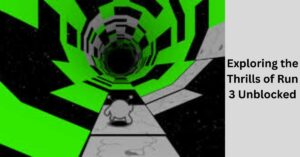https://frontalrevista.com.ar/literatura/leelo-antes-de-verlo/
Let’s start reading about https://frontalrevista.com.ar/literatura/leelo-antes-de-verlo/
Introduction
In the digital age, where visual content dominates our screens, the art of reading seems to be fading into the background. However, the link between reading and watching is a powerful one, as explored in the article “https://frontalrevista.com.ar/literatura/leelo-antes-de-verlo/.” This article delves into the importance of reading before watching, shedding light on how literature can enhance our viewing experiences. Let’s explore this fascinating connection further.
The Power of Words
Words have the ability to paint vivid pictures in our minds, sparking our imagination and creativity. When we read a book before watching its screen adaptation, we are given the opportunity to create our own visual interpretations of the story. This personal connection to the text can deepen our emotional engagement with the characters and plot.
Enhancing the Viewing Experience
By immersing ourselves in the written word first, we gain a deeper understanding of the story’s nuances and complexities. This background knowledge enriches our viewing experience, allowing us to appreciate the adaptation on a whole new level. Reading before watching can unveil hidden layers of meaning and symbolism that may not be immediately apparent on screen.
Building Anticipation
Reading a book before its on-screen adaptation can build anticipation and excitement for the upcoming movie or series. As we follow the characters and their journey through the pages, we eagerly await seeing them come to life on screen. This sense of anticipation can heighten our emotional investment in the story and make the viewing experience even more rewarding.
Understanding Character Depth
Books often provide more in-depth character development and internal monologues that may not translate fully to the screen. By reading the source material first, we gain insight into the characters’ motivations, fears, and desires, allowing us to form a deeper connection with them. This understanding of character depth can enhance our empathy and engagement with the story.
Exploring Themes and Messages
Literature is rich with themes and messages that may be subtly woven into the narrative. Reading the book before watching the adaptation enables us to explore these deeper layers of meaning and reflect on the broader themes of the story. This critical engagement with the text can lead to a more profound appreciation of the author’s intentions and the story’s impact.
Comparing Adaptations
When we read a book before watching its adaptation, we have the unique opportunity to compare and contrast the two versions. This comparative analysis can reveal differences in storytelling techniques, character portrayals, and thematic emphasis. By examining these differences, we gain a greater understanding of the creative choices made in the adaptation process.
Preserving the Art of Reading
In a world inundated with visual stimuli, the act of reading is a precious and enriching experience. By promoting the practice of reading before watching, we uphold the value of literature and storytelling. Encouraging others to engage with books before their screen adaptations can reignite a love for reading and foster a deeper appreciation for the written word.
Embracing the Connection
The link between reading and watching is a symbiotic one, each enhancing the other in unique ways. By embracing this connection and prioritizing reading before watching, we open ourselves up to a world of imagination, insight, and emotional resonance. Let’s celebrate the magic of literature and its transformative power on our viewing experiences.
FAQs
1. Why is it important to read before watching?
Reading before watching allows you to form your own visual interpretations of the story, deepen your understanding of the plot and characters, and build anticipation for the on-screen adaptation.
2. How does reading enhance the viewing experience?
Reading provides more in-depth character development, explores themes and messages in greater detail, and allows for a comparative analysis between the book and its adaptation.
3. What are the benefits of comparing the book and its adaptation?
Comparing the book and its adaptation helps you understand the creative choices made in the adaptation process, appreciate differences in storytelling techniques, and gain insight into character portrayals.
4. How does reading before watching preserve the art of reading?
Promoting the practice of reading before watching encourages a love for literature, fosters a deeper appreciation for storytelling, and upholds the value of the written word in a visually-driven world.
5. Can reading before watching enhance emotional engagement with the story?
Yes, reading before watching allows you to form a deeper connection with the characters, understand their motivations and desires, and empathize with their journey on a more profound level.
6. What role does anticipation play in the reading-before-watching experience?
Anticipation builds excitement for the on-screen adaptation, heightens emotional investment in the story, and creates a sense of eagerness to see the characters come to life.
7. How does reading before watching contribute to critical engagement with the text?
Reading before watching enables you to explore deeper layers of meaning, reflect on thematic messages, and engage in a critical analysis of the author’s intentions and the story’s impact.
Conclusion
In conclusion, the article “https://frontalrevista.com.ar/literatura/leelo-antes-de-verlo/” highlights the profound connection between reading and watching, emphasizing the importance of engaging with literature before its on-screen adaptation. By immersing ourselves in the written word first, we enhance our viewing experiences, deepen our understanding of the story, and preserve the art of reading in a visually-driven world. Let’s continue to embrace this powerful link between reading and watching, celebrating the magic of storytelling in all its forms.
related terms: https://frontalrevista.com.ar/literatura/leelo-antes-de-verlo/


